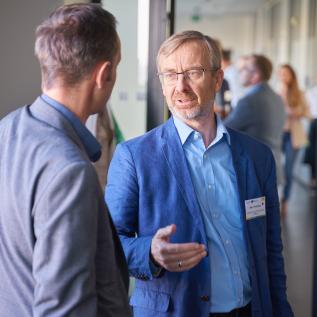Mobilising local authorities to support energy communities

On 5 December 2024, the Policy Learning Platform organised a matchmaking at the request of ALEC (Agence Locale de l’Energie et du Climat Métropole Bordelaise et Gironde), the local Energy and Climate Agency of Gironde, France.
Objective of the matchmaking
The objective was to find inspiration and solutions from other region’s methodologies related to mobilising and empowering municipalities to become active supporters for energy communities in their territories.
ALEC already has a one-stop shop and the region offers calls for proposals to support energy communities but the challenge remains to increase the involvement of the territories.
Participants
Host
- Anaïs Cognacq, ALEC Gironde, FR
Matchmaking Peers
- Charis Kordatos, Cyprus Energy Agency, CY: The aggregated support to >300 Cypriot municipalities via multi-municipality SECAPs and a new expertise centre for energy communities at the Cyprus Energy Agency
- Agnes Frank, Deggendorf Institute of Technology, DE: The Passau District approach to engage local authorities (“Regionalwerke" concept)
- Giovani Padula, Municipality of Montegiordano, IT: How the municipality of Montegiordano become a supporter for the local energy community
- Lorenzo Federiconi, Marche Region, IT
Interreg Europe Policy Learning Platform & Joint Secretariat
- Katharina Krell, Thematic Expert Low Carbon Economy
- Simon Hunkin, Thematic Expert Low Carbon Economy
- Mario Vadepied, Platform Assistant
Key Insights
Grouping municipalities is a good approach to getting things done in resource-constrained municipalities. Small municipalities can be brought together under joint SECAPs (Sustainable Energy and Climate Action Plans) as strategic territorial planning instrument for energy and climate policies. Energy communities should be included in these SECAPs as implementation tools, if not yet done, e.g. on the occasion of an update. In Cyprus, the energy agency has clustered 286 local authorities in 13 joint SECAPs, thus ensuring a full territorial coverage with these planning instruments, taking the maximum effort away from the individual villages.
The Cyprus Energy Agency (CEA) has decided to develop itself into a centre of competence in energy communities in support to the local authorities, thus bundling expertise and support. An internal team was set up and internal capacity building was done (amongst other through a peer review). Today, the CEA team has administrative and technical capabilities to support the emergence of energy communities in Cypriot municipalities with planning, fundraising and technical expertise. The CEA acts as project manager for emerging RECs and as partner of trust for local authorities and citizens alike.
In the rural district of Passau in Bavaria (DE) with 38 municipalities, the Regionalwerk concept has recently been introduced to support the district-level energy transition in a coherent manner. The Regionalwerk serves as technological competence centre, coordinating structure and project developer, working closely with the municipalities. It plans and implements renewable energy projects in the district in form of energy communities, alone or with third parties, by setting up project companies. The district level approach allows to steer the project development so that the optimal renewable energy mix can emerge in the region (and not only e.g. PV projects). Muncipalities are members of the Regionalwerk and pay a financial contribution together with the district. The Regionalwerk built up its internal expertise and represents now a mutualised and synergised district level structure to support the municipalities.
To get the local authorities interested in the concept of energy communities, it helps to stress the local dimension and the local value creation and retention potential of RECs. The District office of Passau make an action plan for “cheaper, green energy, coming from the region for the region”; The social aspect is very important for grabbing the awareness of the municipalities.
It is helpful for small municipalities with lack of resources if they are grouped together in intermunicipal groupings, district level or regional level groupings to receive support from a single structure that serves them all. There are economies of scale to be made by pooling resources. The case of Montegiordano in Calabria shows how hard it is for individual, small villages in peripheral areas suffering from demographic decline to pull off energy communities on their own. In such areas with low income population and low civic participation, energy communities don’t emerge on their own fro the grassroots. In such cases, the projects are typically driven by motivated mayors. Yet, support from the region would be welcome.

Peer review publication
Find more information on the methodology and experiences of previous beneficiaries in our publication.

Apply for a peer review
Start your peer review application process today and find solutions to your policy challenge with our expert and peers!
